As we discuss the use of the term serpent found in the text, and in particular, the actions of Mosheh in respect of the commands which issued from YAH, take a look at this:
Shemoth (Exodus) 7:8-13
And YAHUAH spoke unto El-Mosheh and unto El-Aharon, saying, 9 When Phar`oh shall speak unto you, saying, Show a miracle for you: then you shall say unto El-Aharon, Take את eth-your rod, and cast it before Phar`oh, and it shall become a serpent [tanniyn].
10 And Mosheh and Aharon went in unto Phar`oh, and they did so as YAHUAH had commanded: and Aharon cast down את eth-his rod before Phar`oh, and before his servants, and it became a serpent [tanniyn]. 11 Then Phar`oh also called the wise men and the sorcerers: now the magicians of Mitsrayim, they also did in like manner with their enchantments. 12 For they cast down every man his rod, and they became serpents [tanniyn]: but Aharon's rod swallowed up את eth-their rods. 13 And he hardened Phar`oh’s heart, that he hearkened not unto them; as YAHUAH had said.
Well, let’s see if this is actually what is said. Do we have the appearance of the nachash (נָחָשׁ)? Actually, no, we don’t have nachash [the serpent]. Instead we have the word tanniyn (תַּנִּין)
Strong's H8577. This word appears 28 times in the Tanakh, and in 25 instances, the word is interpreted as dragon! The only exception to this treatment is found in the passage in Shemoth above.
Now consider this passage from Yechezq’el (Ezekiel) 29:3
Speak, and say: Thus says ADONAI YAHUAH: Behold, I am against you, Phar`oh king of Mitsrayim, the great dragon that lies in the midst of his rivers, which has said,
My river is my own, and I have made it for myself.
The last section of this verse is a quote from Cepher Yashar (Jasher) 79:51:
And the anger of the king was kindled at their words, and he said to them: But who amongst all the elohiym of nations can do this? my river is my own, and I have made it for myself.
Now the implications of this are significant. Prophetically, the casting of Aharon’s rod to create a dragon could also be a political statement – i.e., the creation of a king or leader such as Mosheh. The diviners then cast down their rods to create similar challengers, but the dragon of Aharon, i.e., Mosheh, swallowed up their political authority!
However, let’s take a look at the rod of Mosheh for a moment, in comparison.
Shemoth (Exodus) 4:2-4
And YAHUAH said unto him: What is that in your hand? And he said, A rod. 3 And he said, Cast it on the ground. And he cast it on the ground, and it became a serpent [nachash]; and Mosheh fled from before it. 4 And YAHUAH said unto Mosheh: Put forth your hand and take it by the tail. And he put forth his hand, and caught it, and it became a rod in his hand:
We can say safely here, that Mosheh’s rod became a serpent. But in Shemoth 7:9, we find that Aharon’s rod became a dragon.
Luqas (Luke) 11:9-11
And I say unto you, Ask, and it shall be given you; seek, and ye shall find; knock, and it shall be opened unto you. 10 For everyone that asks receives; and he that seeks finds; and to him that knocks it shall be opened. 11 If a son shall ask bread of any of you that is a father, will he give him a stone? or if he ask a fish, will he for a fish give him a serpent?
We open a new can of worms here as we discuss the bread and the fish given to the 4,000 and to the 5,000.
Mattithyahu (Matthew) 14:15-21
And when it was evening, his Talmidiym came to him, saying, This is a desert place, and the time is now past; send the multitude away, that they may go into the villages, and buy themselves food. 16 But YAHUSHA said unto them, They need not depart; give ye them to eat. 17 And they say unto him, We have here but five loaves, and two fish. 18 He said, Bring them hither to me. 19 And he commanded the multitude to sit down on the grass, and took the five loaves, and the two fish, and looking up to heaven, he blessed, and broke, and gave the loaves to his Talmidiym, and the Talmidiym to the multitude. 20 And they did all eat, and were filled: and they took up of the fragments that remained twelve baskets full. 21 And they that had eaten were about five thousand men, beside women and children.
Marqus (Mark) 8:1-9
IN those days the multitude being very great, and having nothing to eat, YAHUSHA called his Talmidiym unto him, and said unto them, 2 I have compassion on the multitude, because they have now been with me three days, and have nothing to eat: 3 And if I send them away fasting to their own houses, they will faint by the way: for diverse of them came from far. 4 And his Talmidiym answered him, From whence can a man satisfy these men with bread here in the wilderness? 5 And he asked them, How many loaves have ye? And they said, Seven. 6 And he commanded the people to sit down on the ground: and he took the seven loaves, and gave thanks, and broke, and gave to his Talmidiym to set before them; and they did set them before the people. 7 And they had a few small fish: and he blessed, and commanded to set them also before them. 8 So they did eat, and were filled: and they took up of the broken meat that was left seven baskets. 9 And they that had eaten were about four thousand: and he sent them away.
So, the Besorah Marqus (the Gospel of Mark) includes the feeding of both the five thousand and the feeding of the four thousand. Both are referenced again:
Marqus (Mark) 8:19-21
When I broke the five loaves among five thousand, how many baskets full of fragments took ye up? They say unto him, Twelve. 20 And when the seven among four thousand, how many baskets full of fragments took ye up? And they said, Seven. 21 And he said unto them: How is it that ye do not understand?
How is it that we do not understand?
In the feeding of the five thousand:
Consider that the five loaves of bread are the five books of the Torah – each daily read being our את eth-daily bread.
Consider that the two fish are the two testimonies given to the two houses of Yashar’el, who would become at some point one stick.
Consider that the five thousand are the number of years that such food would be given, from the death of A’dam (Yovheliym 4:29-30) to the return of the Son of A’dam.
Consider that the twelve loaves are the food for the twelve tribes of Yashar’el.
In the feeding of the five thousand, we see that from the death of A’dam, which occurred at the end of the 19th Jubilee in approaching 1000 B.C., the Torah and the two Testimonies – the testimony of MASHIACH and the testimony of prophecy, would be given for 5,000 years, and even then, there would be sufficient food for the feeding of the twelve tribes to its completion.
In the feeding of the four thousand:
Consider that the seven loaves are the testimony of the seven-fold doctrine of his whole creation.
Consider that the seven loaves are the seven thousand years of completion of the week of creation.
In the feeding of the four thousand, we seed that that four thousand years occurs from the time of David taking the throne to the end of the millennial reign. Why? Because the seven loaves represent the entirety of the seven days of creation – each day being equal to 1,000 years.
The seven loaves are given to feed the people of the Kingdom.
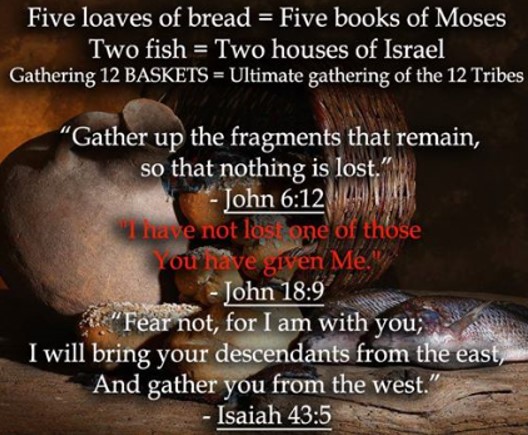
Chokmah Shalomah (Wisdom of Solomon) 15:4-8
For it was requisite, that upon them exercising tyranny, that they should come to penury, which they could not avoid: but to these, only to be shown how their enemies were tormented. 5 For when the horrible fierceness of beasts came upon these, and they perished with the stings of crooked serpents, your wrath did not endure forever: 6 But they were troubled for a small season, that they might be admonished, having a sign of salvation, to put them in remembrance of the commandment of your Torah. 7 For he that turned himself toward it was not saved by the thing that he saw, but by you, that are the Saviour of all. 8 And in this you made your enemies confess, that it is you who deliver from all evil:
Chokmah Shalomah (Wisdom of Solomon) 11:14-16
For he whom they treated with scorn, when he had been thrown out long before at the casting forth of the infants, him in the end, when they saw what had come to pass, they admired. 15 But for the foolish devices of their wickedness, with which, being deceived, they worshipped serpents void of reason, and vile beasts, you sent a multitude of unreasonable beasts upon them for vengeance; 16 That they might know, that wherewithal a man sins, by the same also shall he be punished.
Here, we have a record that the Egyptians (Mitsriym) worshipped serpents (the cobra, the adder, the asp). Yet, when a father offers bread (the bread of life – the five loaves of the Torah) and the bread is rejected, do those who reject end up with the serpent? Of course; and the serpent brings forth its own torah – corpus juris civilis, i.e., the civil judgments of the dead). And when a father offers a fish (the testimony of one of the houses of Yashar’el) and the fish is rejected, do those who reject end up with a rock? Of course.
Here is the Kaaba Stone in Mecca:
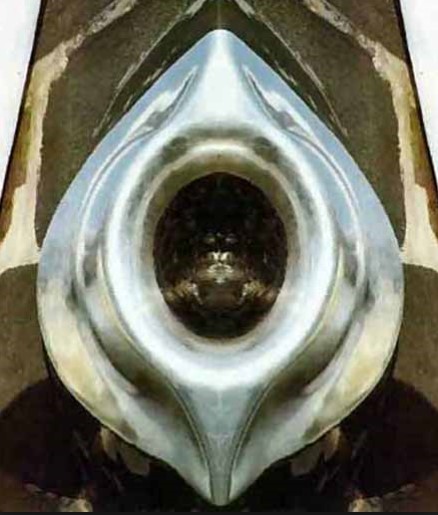
Here is its worship:

Here are the stones of the Fortress Antonia in Yerushalayim:
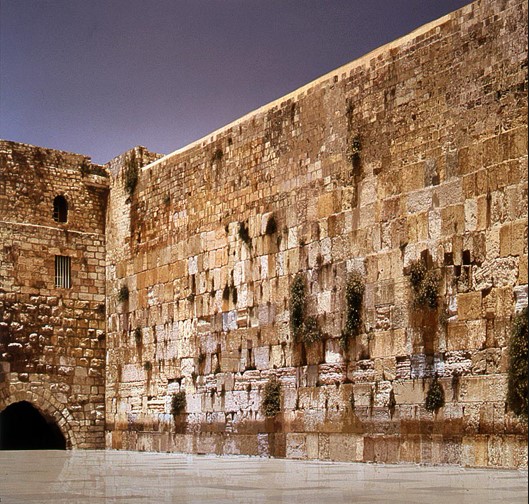
Here is their worship:
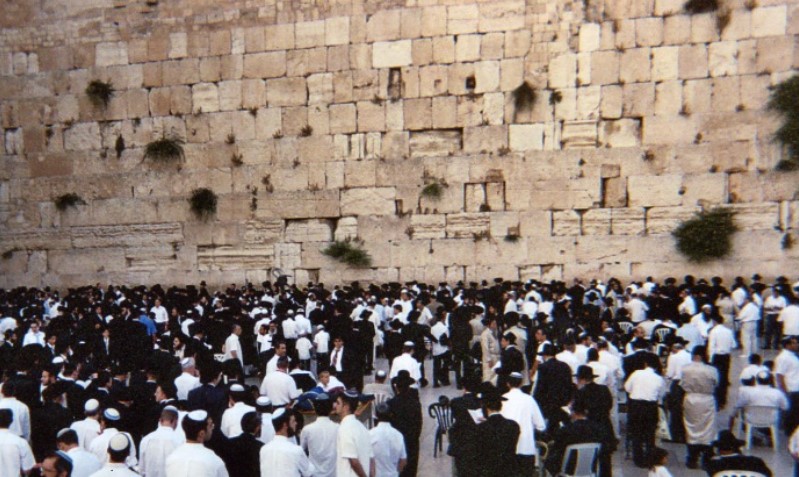
Here is the mark of the Mistriym (Egyptian) worship (marked by an obelisk):
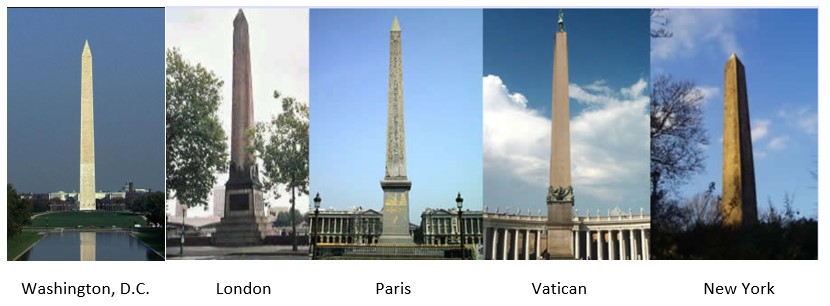
And here is the head of the serpent:

Audience Hall - Vatican City